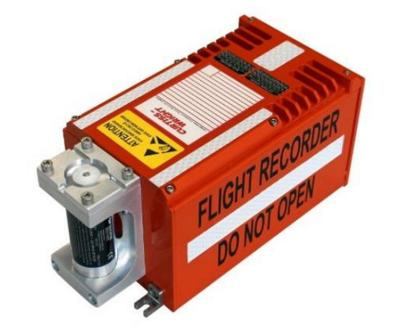Thu, Feb 15, 2024
FAA-Required 2-Hour Limit Inconveniences Investigations, Board Says
The NTSB is pushing to require all cockpit voice recorders to migrate from a 2-hour to a 25-hour capacity, bolstering the ability of crash investigators to retain valuable incident data.

The Board wants the FAA to create a regulatory requirement for 25-hour recorders, citing a number of recent high-profile incidents that were hampered by a technologically outdated 2-hour recording loop. Since 2018, they've identified "at least 14 NTSB investigations have been hampered because cockpit voice recorder, or CVR, data were overwritten, including seven serious runway incursions that occurred in early 2023."
“In the recent Alaska Airlines door plug blowout accident, our investigators don’t have the CVR audio to fully understand all of the challenges the flight crew faced in response to the emergency,” said NTSB Chair Jennifer Homendy. “Any investigation in which the CVR audio is overwritten and unavailable to us, means that we may miss opportunities to address safety issues identified on recordings. And that’s unacceptable.”
The NTSB notes that standards abroad already require new-manufacture aircraft to sport a 25-hour CVR, a rule that has been aligned at home. As it stands, that only applies to brand new aircraft, with no provisions for forced retrofitment of improved recording capability. The FAA had once said it would be too expensive for the domestic fleet, but the NTSB said only half as many aircraft would be affected as once thought.
“CVRs are among the most valuable tools for accident investigation because they provide contemporaneous information on flight crew intentions and coordination as well other factors, such as procedural compliance, workload, fatigue, and situational awareness,” said Tim LeBaron, director of the NTSB’s Office of Aviation Safety. “This information is critical to our ability to conduct more thorough investigations and target safety recommendations more effectively.”
More News
From 2023 (YouTube Version): Legacy of a Titan Robert (Bob) Anderson Hoover was a fighter pilot, test pilot, flight instructor, and air show superstar. More so, Bob Hoover was an i>[...]
Get The Latest in Aviation News NOW on Instagram Are you on Instagram yet? It's been around for a few years, quietly picking up traction mostly thanks to everybody's new obsession >[...]
Aero Linx: B-52H Stratofortress The B-52H Stratofortress is a long-range, heavy bomber that can perform a variety of missions. The bomber is capable of flying at high subsonic spee>[...]
Altimeter Setting The barometric pressure reading used to adjust a pressure altimeter for variations in existing atmospheric pressure or to the standard altimeter setting (29.92).>[...]
"Knowing that we play an active part in bettering people's lives is extremely rewarding. My team and I are very thankful for the opportunity to be here and to help in any way we ca>[...]
 Classic Aero-TV: Remembering Bob Hoover
Classic Aero-TV: Remembering Bob Hoover ANN FAQ: Follow Us On Instagram!
ANN FAQ: Follow Us On Instagram! ANN's Daily Aero-Linx (05.15.24)
ANN's Daily Aero-Linx (05.15.24) ANN's Daily Aero-Term (05.15.24):Altimeter Setting
ANN's Daily Aero-Term (05.15.24):Altimeter Setting Aero-News: Quote of the Day (05.16.24)
Aero-News: Quote of the Day (05.16.24)



